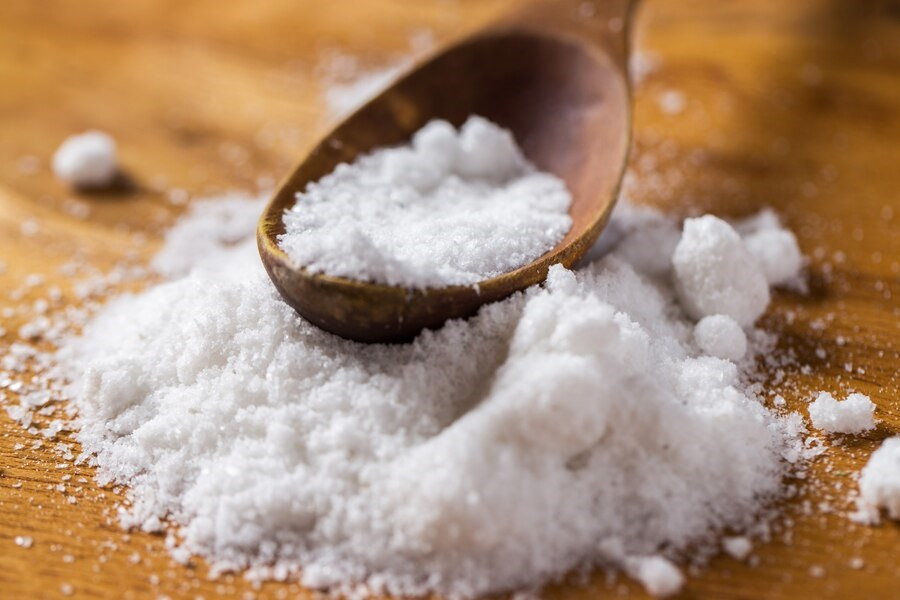Salt serves multiple purposes beyond flavor enhancement; it acts as a preservative, binder, and stabilizer in food. Salt, also known as sodium chloride, is essential for human health in small quantities. Sodium plays crucial roles in conducting nerve impulses, muscle contraction and relaxation, and regulating the body's water and mineral balance.
Excessive salt intake can lead to detrimental health effects, particularly in terms of high blood pressure, heart disease, and stroke. So, what's the recommended daily limit for salt intake?
Recommended Daily Salt Intake
Health experts and world health organizations recommend daily salt intake based on age as follows:
- Children under 1 year, less than 1 gram
- Children aged 1-3 years, no more than 2 grams
- Children aged 4-6 years, no more than 3 grams
- Children aged 7-10 years, no more than 5 grams
- Children aged 11 years to adults, no more than 6 grams or around 1 tsp
Babies who have just been introduced to their first solid foods should not be allowed to eat too much salt or foods that already contain salt. The baby's kidneys are not yet fully formed, so they cannot be processed and filtered properly.
Read more: Different Sea Salt And Kitchen Salt, Which One Is Healthier?
What are the Effects of Consuming Too Much Salt?
Consuming excessive salt, more than recommended, can certainly have a negative impact on health. Some of these impacts include:
High blood pressure
Consuming excessive salt can cause an increase in blood pressure. This is because the body will store more water, which will increase blood volume and pressure on the artery walls.
Increase the risk of cardiovascular disease
High blood pressure caused by excessive salt consumption increases the risk of heart disease and blood vessel problems such as heart attacks, tender arterial disease, and heart failure.
Strokes
Excessive salt consumption is also associated with an increased risk of stroke, especially because high blood pressure can damage brain blood vessels and increase the possibility of blood clots.
Read more: Benefits Of Epsom Salt For Body Health
Loss of calcium from the body
Excessive salt consumption also causes calcium loss in the body through urine. This loss of calcium can lead to decreased bone density and an increased risk of osteoporosis.
Kidney stones
A diet high in salt and a lack of water intake can increase the risk of developing kidney stones. Urine that is too concentrated allows the crystallization of substances that form kidney stones, such as calcium, oxalate, or higher levels of uric acid.
Dehydration
Even though salt can retain water in the body, consuming excessive salt can actually cause dehydration. When you consume excessive salt, the body will try to maintain fluid and electrolyte balance by increasing the concentration of sodium in the blood. To do this, the body needs additional water, which causes thirst and encourages you to drink more water.
If the need for additional fluids is not met, the body will compensate by using water from body cells and tissues. As a result, the body can experience dehydration, where the water level in the body becomes too low.
So if you often feel thirsty, your hands or feet swell, you have headaches, and your blood pressure increases, check your salt intake in your food again. Get guidance on using salt in daily cooking by consulting a doctor or nutritionist.
If you need medical advice or consultation, you can either visit a doctor or make use of the consultation features that are available in the Ai Care application by downloading the Ai Care application from the App Store or Play Store.
Looking for more information about nutrition, food, and other diet tips? Click here!
- dr. Monica Salim
NHS UK (2023). Salt in your diet. Available from: https://www.nhs.uk/live-well/eat-well/food-types/salt-in-your-diet/
WHO (2023). Sodium reduction. Available from: https://www.who.int/news-room/fact-sheets/detail/salt-reduction
American Heart Association (2024). How much sodium should I eat per day?. Available from: https://www.heart.org/en/healthy-living/healthy-eating/eat-smart/sodium/how-much-sodium-should-i-eat-per-day
Harvard TH Chan (2023). Salt and Sodium. Available from: https://www.hsph.harvard.edu/nutritionsource/salt-and-sodium/
Courtney Southwick (2023). Are You Eating Too Much Salt? These Are The Signs and Symptoms. Available from: https://www.health.com/what-happens-if-you-eat-too-much-salt-7556974
Madeline Laguaite (2023). Signs You’re Eating Too Much Salt. Available from: https://www.webmd.com/diet/ss/slideshow-too-much-salt
Katie McCallum (2022). What Happens If You Eat Too Much Salt?. Available from: https://www.houstonmethodist.org/blog/articles/2022/mar/what-happens-if-you-eat-too-much-salt/











